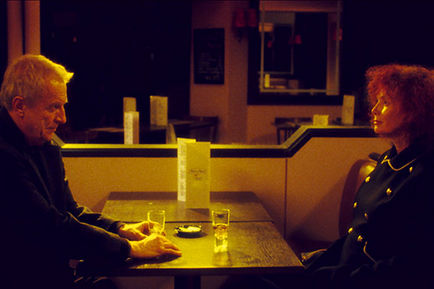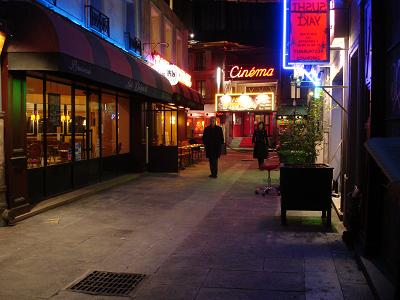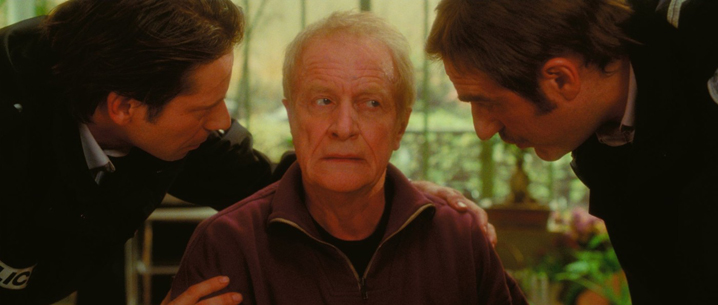Not so much a fantasy as a fantasia, Alain Resnais’ first novel adaptation, his second adaptation (after Mélo) and, unless my memory fails me, his fifth film in CinemaScope (after Le chant du styrène, Last Year at Marienbad, L’amour à mort, and Private Fears in Public Places), this brittle comedy may also be the most purely surrealist of all his films, especially in its emphasis on irrational impulses (as well as its non-sequitur final shot). And the fact that it’s often creepy (as well as very personal) is surely more of a plus than a minus; it hasn’t been acknowledged nearly enough that Resnais’ best and most beautiful films — including Statues Also Die, Toute la mémoire du monde, Le chant du styrène, Night and Fog, Hiroshima mon amour, Marienbad, Muriel, Providence, Mon oncle d’Amérique, Mélo, and Not on the Lips, among others — usually turn out to be his creepiest. (An exception to this rule is L’amour à mort, which is exceptionally creepy but also far from Resnais’ best.)
Seen twice on Friday at the New York Film Festival — first at a press screening, then at the $40 opening — this is a film whose pastel hues and intricate color coding (e.g., the multiple associations of blue with the hero, played by André Dussollier, and the various associations of red with at least two of the main women in the story, played by Sabine Azéma and Anne Consigny) may come even closer to comic-book images than those in I Want To Go Home. Wild Grass seems personal above all as an expression of Resnais’ (personal) shyness, although it doesn’t for me qualify as one of his masterpieces. It’s fascinating to ponder how his first two features as well as his last two to date focus on illicit passion, even though the blocking and frustration of that passion in the latter two films seems far more prominent (as it is in Muriel). What gives this odd provocation much of its thematic interest is the cheerful way the secondary characters (Dussollier’s wife, Azéma’s fellow dentist and best friend) become so warmly complicitous in not only tolerating but nurturing the mutual obsession between the two leads. [9/27/09]



